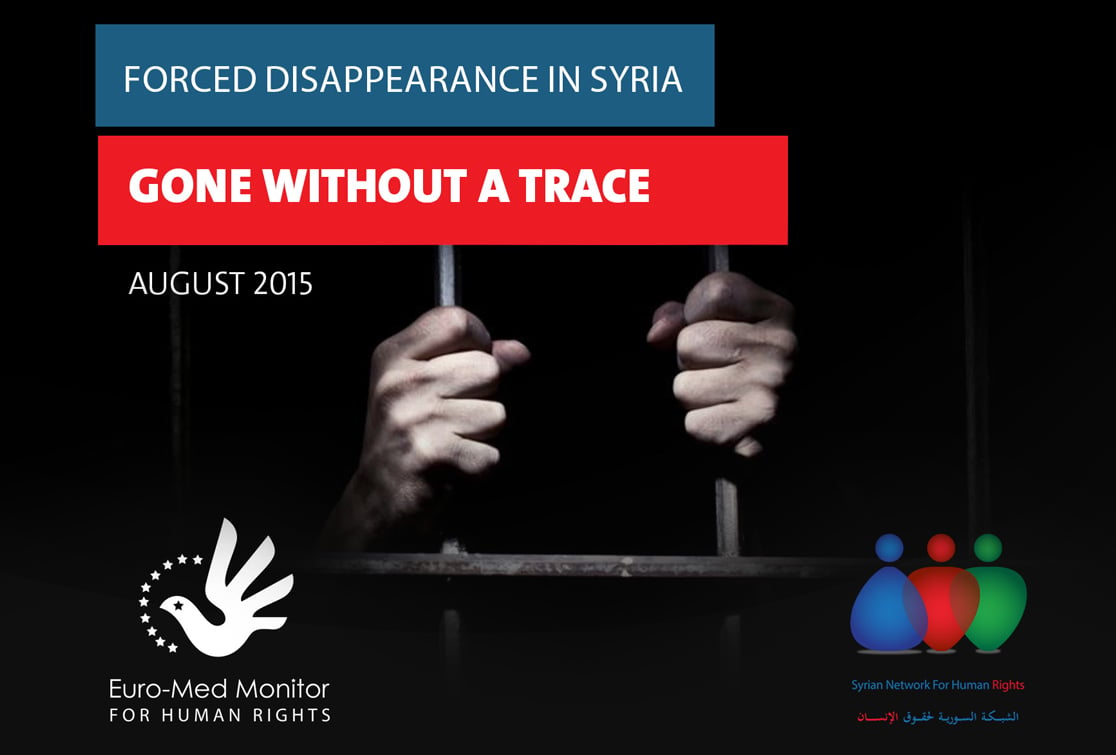Gone Without a Trace

Languages
Available In
Introduction
Since the beginning of the popular uprising in March 2011, detention and forced “disappearances” have occurred on a daily, and increasing, basis. Exacerbating the situation is the fact that a variety of parties rule different areas of Syria. The regime of Bashar al-Assad holds the greatest number of arbitrarily detained people, accounting for 96 percent of forced disappearances. The remainder are the responsibility of ISIS, the Kurd Self-Management Forces and other armed opposition groups.
Forced disappearance is a tragedy for both those captured and held alive for days, weeks or years, and their families. The victims are kidnapped from either their homes or the streets. Sometimes the crime is carried out by people in military uniform, and no matter what they wear, they universally refuse to divulge who they are or the basis for their actions. The various parties involved in the civil strife often deny possession of the victims.
In the second article of the International Convention for the Protection of All Persons from forced Disappearance, the crime is defined to be “the arrest, detention, abduction or any other form of deprivation of liberty by agents of the state or by persons or groups of persons acting with the authorization, support or acquiescence of the state, followed by a refusal to acknowledge the deprivation of liberty or by concealment of the fate or whereabouts of the disappeared person, placing the person outside the protection of the law.”
//


